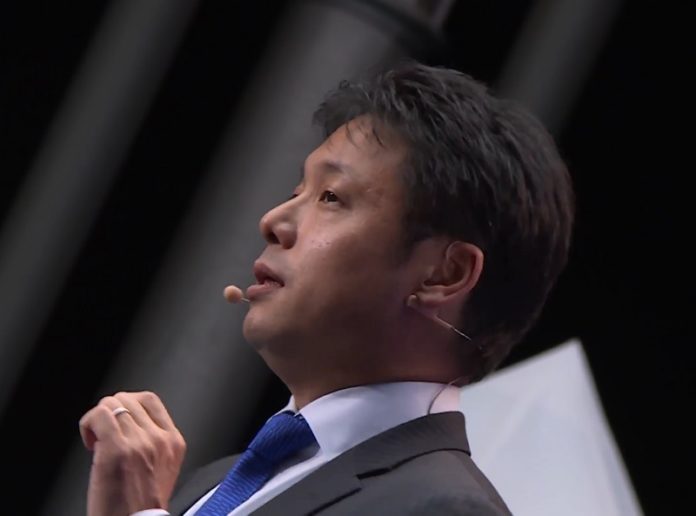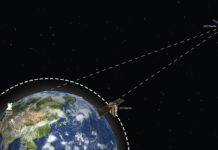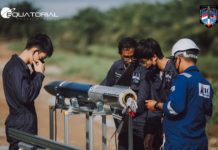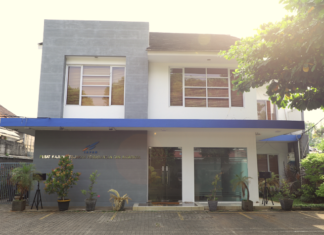Founder & CEO of space debris-removal company Astroscale, Nobu Okada, has announced that it will launch a satellite “quite soon” from Russia.
The announcement took place during a press conference at the World Economic Forum’s Annual Meeting of the New Champions 2017 in Dalian, China, which was streamed live on 28 July 2017. Nobu Okada added that the launch, whose exact date cannot yet be disclosed, will be followed by a “full demonstration in the near future”.
Astroscale, a Singapore-based company founded in 2013, is working to provide end-of-life services for satellites, orbital debris monitoring services, and to develop on-orbit technologies that can safely remove space debris.
Winning the 8th place on Fast Company’s list of Top 10 Most Innovative Companies in Space for 2017, Astroscale aims to address space environment issues and is leading a team of “Space Sweepers” comprising over 20 specialists from various fields.
Below is a transcript of Nobu Okada’s portion of the press conference, “World Economic Forum’s Technology Pioneers”, of which Astroscale is one. The conference was hosted by Peter Vanham and touched upon such issues as space debris and the changing space industry trends.
Transcript
Peter Vanham: Could you tell us where you’re from and what you do?
Nobu Okada: Our company, Astroscale, is Singapore-based. We have offices in Tokyo and the UK. What we do is, we are developing technologies to remove space debris. Space debris is a huge issue in the space industry. Not only the space industry, but also ordinary people. The density of space debris has reached critical levels that the debris will start colliding with each other, and a chain reaction may start happening, so that space is not sustainable anymore.
Peter Vanham: What sort of business challenges do you tackle when you work in outer space?
Nobu Okada: Over the last 6 years, people have littered satellites and rocket upper stages into space. And that amount of debris has accumulated to a critical level. And we have to remove them. The biggest challenge for business is three things: one is business model – who pays money to remove them? Two, is technology – how to capture the debris, which flies very fast, much faster than bullets. The third is regulations. It’s very complex. So we’ve been tackling that and we’ve found a way to solve this.
Peter Vanham: What enables you to do this now and not earlier, because I believe in 2013 you were founded. So what enables you to do it now versus five years ago?
Nobu Okada: Many trends came together. One is, the cost of launching has come down, and downsizing of satellites is happening, and the density of the space debris is getting to a critical level, and people are getting aware that space is not sustainable anymore. I think all these trends combined together.
Peter Vanham: That’s a combination of awareness – people are becoming aware of this problem, on the one hand, and on the other hand, technology enabling you to do something about it. Now, we are in 2017. Where do you expect to be with the company, and with this challenge, 5 or 10 years down the line?
Nobu Okada: We’re going to launch the first satellite quite soon from Russia. And also, we are going to have a full demonstration in the near future. And you can’t believe us, but by 2030, we will have three outposts in space – the ISS, the moon, Mars – and there will be commuting spacecraft, and we have to guarantee space safety. To do that, we have to clean up space to avoid collisions.
Peter Vanham: Do you expect the pace of the technology you work with to continue at the same level, to increase, or decrease in the coming years?
Nobu Okada: I think I should talk about the big trend in the space industry. So space was more government-oriented, difficult, and far away from ordinary people. But now the trend is for it to come down to the private sector-oriented, and downsizing. Less money is okay, capital is there. So more and more, the private sector is joining the space industry. That’s good, and that’s why we have an opportunity. Regarding the space debris issue, space agencies have worked on the concepts and R&D, but they have politics. Also, they have an annual budgeting process and they are not fast. So that’s why there’s room for the private sector to accelerate in providing solutions by global procurement, globally finding the key talent, and capital, we can get anywhere in the world. I think that gives us the chance. So to answer your question, space is a new frontier and I’m sure more and more people will join the space industry. And the space industry is always 50-60 years behind the airline industry.
Peter Vanham: We typically see not just the government taking charge of space exploration, but also big countries. We’ve seen Russia and the US in the past, and now also China, and India, and Europe. You’re based in Singapore, and you, I think, were educated in Tokyo. Why are you in Singapore, and how can such a small country make a contribution to space?
Nobu Okada: I had my previous company in Singapore, covering Southeast Asia. But Singapore is the best country, because Singapore is a neutral country. More than 90% of the space debris comes from Russia, the US, and China. So we have to serve these countries and Singapore is in the right location.
The full video can be viewed here: https://www.weforum.org/events/annual-meeting-of-the-new-champions-2017/player?p=1&pi=1&id=92939







